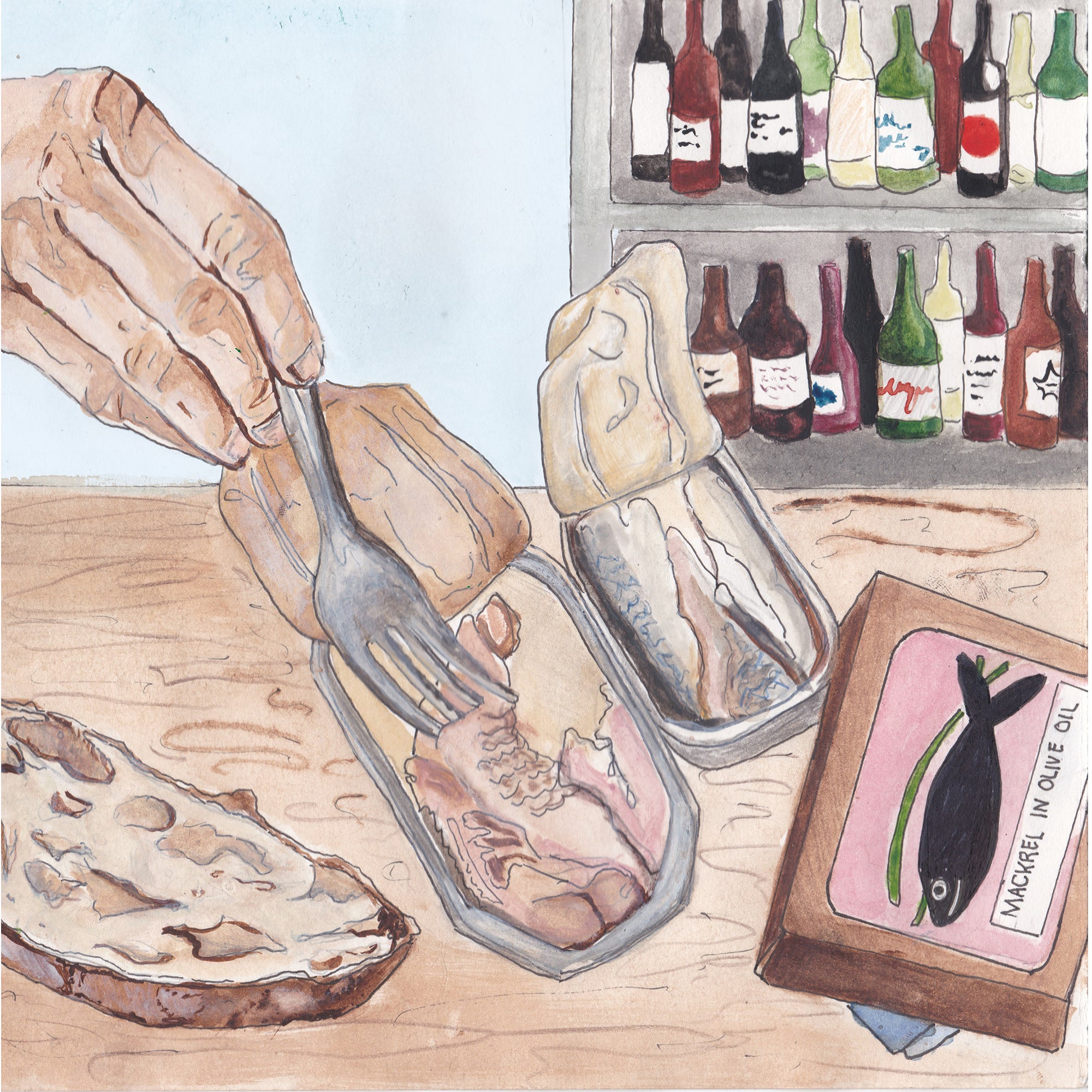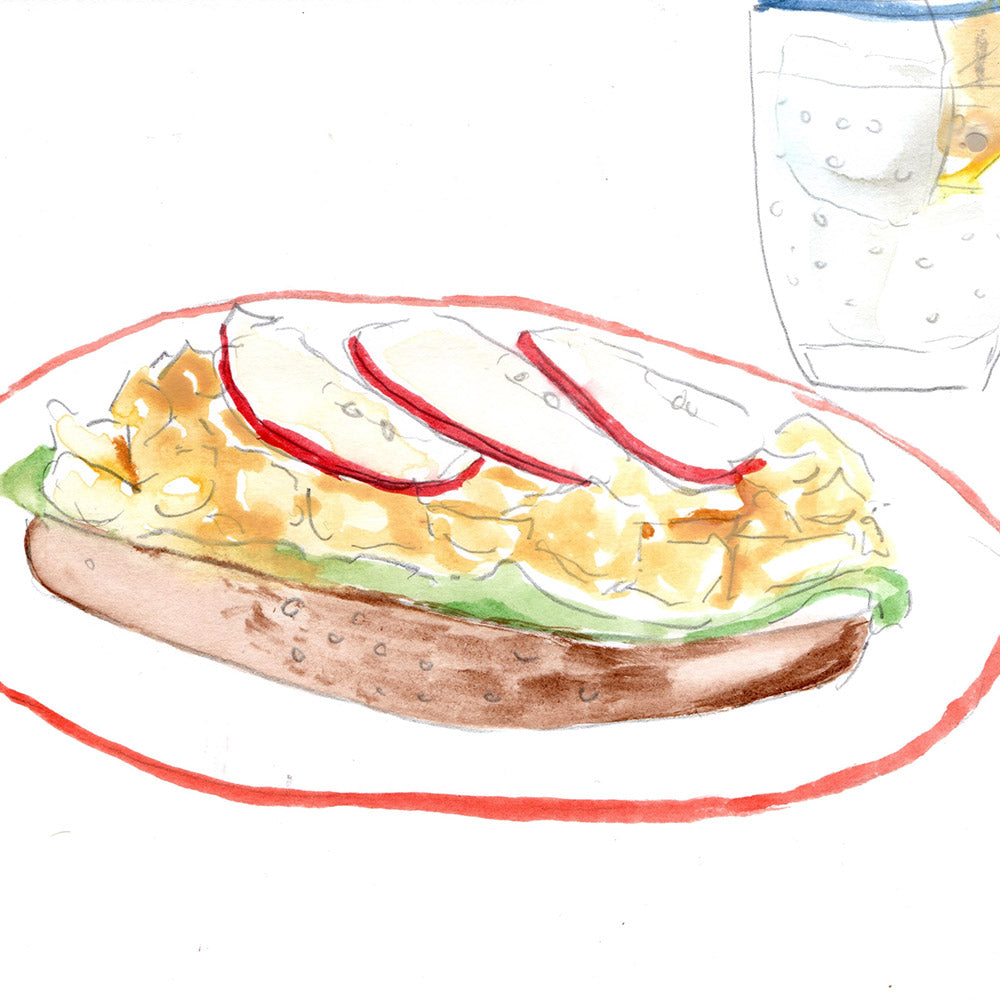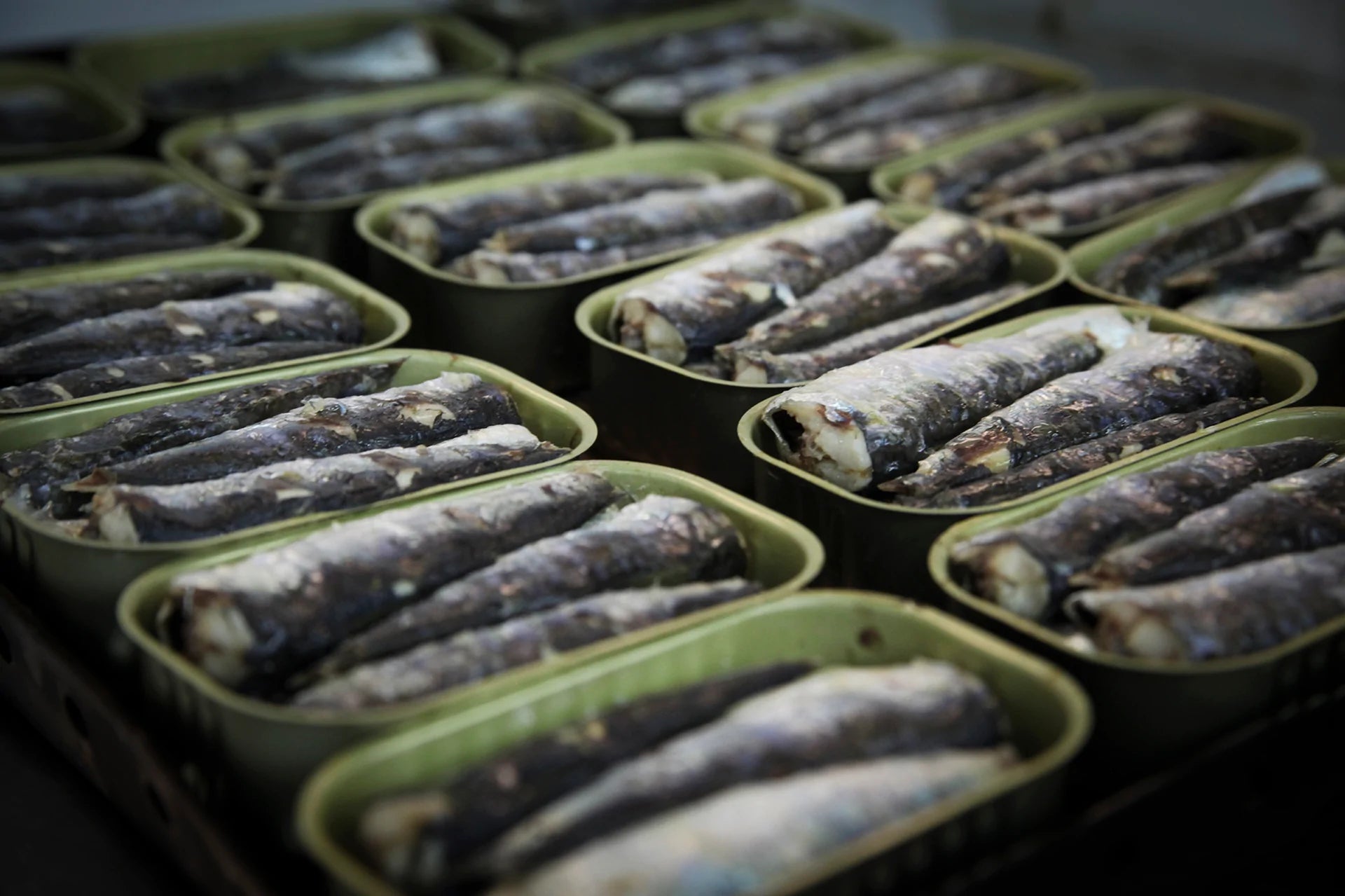There seems to be a resurgence in tinned fish everywhere from Instagram to major clothing labels with their own brands. Give a search and you'll find articles ranking tinned fish from worst to best – from Chicken of the Sea for the average tuna sandwich to Ortiz and Fishwife for a more sophisticated fare. There are multiple bars and restaurants in NYC serving only tinned fish. I recently went to a garden party and the theme was tinned fish – they served this amazing smoked salmon dip with fresh crudité. Slippery smoked mussels were dished out on ceramic plates made to look like something out of an ‘80s cookbook you would find in the back of your grandmother's kitchen among the ‘the new magic of microwave oven cooking’ manual.
I remember when I realised there was an entire tinned fish industry outside of ‘John West;’ I was 21 working in a wine shop after four years of culinary arts school. Before, I had only ever thought of tinned fish as tuna in brine that you drain off and mix with mayonnaise and corn for a staple school lunch. Survivalist at best and obviously subpar to fresh fish, a necessity for people during war times, camping, or quick and cheap meals. But no- how wrong was I! As my favourite food scientist, Harold McGee puts it: “preserved fish aren’t just an inferior relic of preindustrial necessity. They can be a delicious alternative, and they offer a taste of history.”
I walked into my job in the wine shop and was greeted with a tower of tinned fish of all varieties: mackerel, smoked trout, mussels, and even clams. I wretched at the idea of a clam sitting in a tin for over a year. My boss then showed me his full collection in the basement. With every shipment he had gotten from producers in France and Portugal, he kept a few tins back and was ageing them. “Vintage sardines,” he called them. Again, I gagged. I had no idea this was something people did or let alone wanted to do – then he told me what they sold for, and my jaw just hit the floor. “Well, over 20 or even 30 euro for aged vintage sardines,” he said. “Just like a good wine the longer you keep them the better they get.”
He shared some of these delicacies with me while standing over the cash register of the wine shop and I instantly understood. Crusty French sourdough and some 5-year-old sardines transported me somewhere else, somewhere delicious, and somewhere new. It tasted like nothing I had eaten before. I had been lucky enough to be raised by great cooks, eat in some amazing restaurants, taste some Michelin-starred meals, etc., but I had never experienced that intensity and depth of flavour. That simple pleasure set me off on my newest obsession. I started buying my own and experimenting – Simple pasta dishes came together with no more than a fresh chopped tomato, a tin of anchovies, and some parsley. A midnight snack was elevated to haute cuisine with some olives and tinned mussels. An unexpected visitor fed with a garden salad and mackerel in chili oil – no need to season or add anything else other than a drizzle of the oil from the tin. I started to understand trends may come and go, but canned fish, or conservas, will forever remain a classic.
We here at Adya are fortunate to work directly with some tinned fish producers. Da Morgada was founded in 1879 in the picturesque Vila Real de Santo António on the southern coast of Portugal, 90 miles west of Seville. Aging tinned fish is similar to wine and as with ageing a good wine, excellent quality is indeed the primary ingredient. All the fresh fish at the cannery comes from the coast, caught by Portuguese boats and hand processed by local Portuguese artisans. By producing a prized delicacy of Portugal, this cannery is a point of economic, social, and cultural significance. Through highly effective preservation, which prevents oxidative degradation, the nutritional value of the fresh fish is retained, resulting in delicious products rich in omega 3, packed with protein, high in calcium (particularly in the sardines) and loaded with vitamins.
Manuel Maia of Tradi Foods, an export company specialising in artisanal foods - spoke to me about his choice to work with Da Morgada, talking about the unconventional products, and also demonstrating how to appropriately fillet and serve each tin. He explained the selection process for each individual fish, why he chose this oil over that, and why the octopus is presented in a large oval tin rather than the usual smaller circle. It is a process of meticulous selection which really shows when enjoying the end product. Then he went on, explaining how he met the fishermen and discussed how one of their families would gather around once a week to enjoy something from their vintage stash! During ageing, “the fish absorbs the flavours from the oils and aromatics in the tin, the flesh becomes smoother and tender until the bones disappear, totally.” Manuel further added that turning the tins, like turning bottles on the rack, helps to evenly distribute the flavours.
Writing this I'm thinking of beginning my own stash and enjoying the process involved with waiting and anticipating the right time to crack a can open, or simply enjoying them whenever! From Adya's selection, I would recommend the hand-harvested whole sardines known to be among the most succulent in the world. They are cleaned by hand, then cooked on traditional grills and preserved in Portuguese olive oil within hours of them swimming in the ocean. These longstanding artisanal processes result in sardines of outstanding quality, with a natural sweetness and a high nutritional value. Described as “soft (but not too soft) in texture with a natural sweetness and minimal bitterness.” The delicious bite-sized fish is bathed in high-quality Portuguese olive oil, creating the perfect tinned sardine. Keep them in a dry and cool place and see how long you can forget about these tempting little bonne bouche. I would also recommend the Octopus, which has been ethically caught and traditionally prepared with over a century of cannery know-how. Served in high-quality Portuguese olive oil with a pinch of sea salt, this octopus is an uncommonly tender, succulent delicacy perfect for enjoying or laying down to age for a further 1-3 years.



